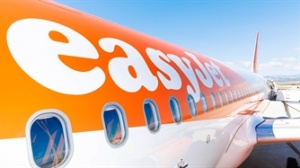easyJet soaring into the recovery

A surge of passengers and a fall in the cost of aviation fuel have seen profits almost triple at low-cost airline easyJet.
Reporting full year results for the year to September 30th 2010 this morning, the Luton-based airline revealed it had made a profit of £154 million.
This is up from £54.7 million the previous year, an increase of some 181 per cent.
Passenger volumes rose eight per cent over the period to 49 million, helping to push its share of the European market up to 7.6 per cent from 6.5 per cent a year earlier.
Fuel costs were down nine per cent.
However, dampening speculation investors would see their first dividend from the airline, easyJet said no payments would be made until 2012.
Presenting her first set of annual results as chief executive Carolyn McCall said: “easyJet’s solid financial performance in a tough trading environment demonstrates that the business model is strong.
“The strategy will build on the strength of easyJet’s network and target leisure and business customers with its best value fares to convenient airports,” she added.
“easyJet is strongly positioned to take advantage of the continuing profitable growth opportunities in European short-haul.”
ADVERTISEMENT
European Expansion
easyJet has continued to benefit from the migration of passengers on continental Europe away from national flag-carriers towards budget airlines - a pattern already well established in the more mature British market.
In response to this growing demand, easyJet unveiled plans to increase the number of aircraft in its fleet by 24 aircraft – taking the total to 220 by September 2013.
The move represents an average annual growth rate of seven per cent in seats flown.
Volcano
However, easyJet confirmed disruption costs have had a “significant impact” on the financial results for 2009/10, with a £97.9 million increase versus the prior year.
Some £27.3 million of this was volcano related, while was £20.8 million snow related and a further £49.8 million was attributed to costs (wet leasing and other costs, mainly EU 2004/261 related), as a result of air traffic control strike action and easyJet’s operational difficulties over the summer.

